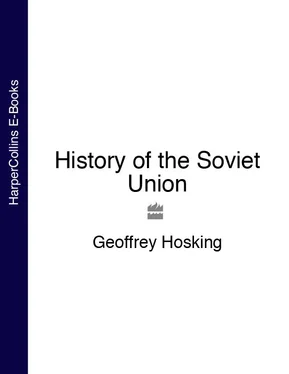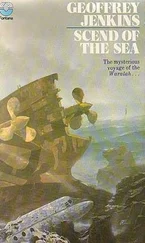This promise was to be belied by events soon enough, but for the first two or three months the Bolsheviks were actually in no position to prevent the emergence of Islamic governing institutions, since this usually happened in areas where soviet power was insecure. As a result, soviets and Muslim committees often existed side by side. It soon became clear, however, that the divide between them was a national as well as a religious one. The soviets were usually entirely composed of Russians, and their attitude to the Muslim committees was often suspicious and hostile, especially in Central Asia, where the memory of the 1916 massacres was still vivid. There were also ideological reasons why no indigenous delegates were admitted to the soviets or to responsible party posts in Islamic regions. As Kolesov, chairman of the Tashkent Congress of Soviets, explained, ‘It is impossible to admit Muslims to the supreme organs of the Communist Party, because they do not possess any proletarian organization.’ And indeed, the working class of Tashkent (mostly either railway or textile workers) were largely Russian. The Tashkent Soviet, consequently, was 100 per cent Russian, and the local native population tended to regard it as the bearer of a relabelled but familiar Russian colonialist oppression. Soviet moves to expropriate waqf (religious endowment) lands, and to close mosques, Koranic schools and sharia (Islamic law) courts, vividly exemplified this oppression: indeed the tsarist regime had never attempted religious discrimination on this scale.
The tension between the two communities burst into the open in February 1918, when units of the Tashkent Soviet stormed and destroyed the city of Kokand, where a Muslim People’s Council had proclaimed the autonomy of Turkestan. Similarly in Kazan, the capital of the Volga Tatars, the soviet decreed martial law, arrested the leaders of the Harbi Shuro, the Muslim military council, and stormed the suburb in which its surving members took refuge.
As a result of these ferocious attacks, some Muslims allied themselves with the Whites. But they did not usually stay with them for long, for the Whites were no less ruthless with those who opposed them–they shot the prominent Tatar leader, Mulla-Nur Vakhitov, for example, in August 1919–and they did not even have any theoretical commitment to national or religious freedom: on the contrary, they proclaimed their intention of restoring Russian supremacy over other nations within the empire. This may explain the fact that most Muslims continued to try to work with the Communists, despite the frequent brutality of their policy in the localities.
For their part, the Communist government in Moscow did come half way to meet them, at least as long as they needed their support in the civil war. As part of Narkomnats, Stalin set up a Central Muslim Commissariat, headed by Vakhitov (until his death), to coordinate Muslim affairs, and to articulate the views of the Muslim population. They were even allowed for a time to run a Muslim Military College, directed by the Tatar, Mir-Said Sultan Galiev: at one stage nearly half the Red troops on the eastern front facing Kolchak were Muslim, so that the Bolsheviks had an overwhelming interest in their morale and training, in spite of the obvious dangers, from their point of view, of authorizing separate Islamic fighting units.
Stalin even held out the hope that the Soviet government would create a large Tatar-Bashkir Republic, to act as an arena for the development of Islamic socialism: though less than a pan-Turkic republic, it could be seen as the first step towards such a state. The Russian Communist Party also recognized at this stage the existence of an independent Muslim Communist Party, not directly subordinated to Moscow.
At the height of their fortunes, in the summer of 1918, the Muslim socialists had succeeded in creating the embryos from which an Islamic socialist state could grow: a state apparatus, a party, an army. The potential ideology of such a state was adumbrated by Sultan Galiev in Zhizn natsionalnostei (The Life of the Nationalities), the organ of Narkomnats. He extended Lenin’s view, expounded in Imperialism, the Highest Stage of Capitalism , that the class struggle was now taking place on an international scale: Sultan Galiev actually claimed that European nations as a whole objectively exploited the colonized nations as a whole .
All Muslim colonized peoples are proletarian peoples and as almost all classes in Muslim society have been oppressed by the colonialists, all classes have the right to be called ‘proletarians’.... Therefore it is legitimate to say that the national liberation movement in Muslim countries has the character of a socialist revolution.
This was the first statement of a thesis which has become enormously influential in the twentieth century, as developed by Mao Tsetung, Ho Chiminh, and other Asian, African and Latin American Marxists. Like them, Sultan Galiev increasingly suspected that only the colonized peoples were really revolutionary in spirit. He feared that the Russian people, having achieved supremacy in a revived empire, albeit now socialist in name, would resume their oppression of other peoples. He could not give vent to such fears in Zhizn natsionalnostei , but he did express the conviction, unwelcome to most Bolsheviks at the time, that revolution was to be expected, not from Western Europe, where the workers were already, from an international viewpoint, ‘bourgeois’, but from the East, where colonized and oppressed peoples could be united by the joint Islamic and Communist battle cry of anti-imperialism. Like Mao, he saw the army–in his case the Muslim units of the Red Army–as a nucleus and training ground for a revolutionary movement, and ultimately for a legitimate and popular socialist government. In Tashkent a similar line was taken by the Kazakh Tarar Ryskulov, who hoped to establish an autonomous Turkic Republic and Turkic Communist Party.
As soon as the Bolsheviks had a little more confidence in their military position, they moved to inhibit any developments which might impart substance to Sultan Galiev’s vision. Already in November 1918 they merged the Muslim Communist Party with the Russian Communist Party, as a subordinate unit. The scheme for a Tatar-Bashkir Republic was dropped and instead two smaller republics, Tatarstan and Bashkiria, were set up within the Russian Republic: in this way hopes of a homeland for Islamic socialism were dashed.
Once the civil war was safely over, and Sultan Galiev’s doubts became even more irksome to the Bolsheviks, in 1923 he was arrested on Stalin’s orders, charged with collaborating with the Basmachi (see below), and expelled from the Communist Party. He was released for a time, but finally rearrested in 1928, and sent to the concentration camp of Solovki. Once the Bolsheviks were securely in power, they unambiguously disavowed the temporary alliance with Muslim ‘national communism’.
This way having been closed, there remained to Muslims only meek submission or outright armed resistance. The latter began with the Soviets’ overthrow of the Kokand government, whose chief of militia escaped and began to organize raids against Russian settlements and Red Army detachments. Gradually more and more partisan bands came into existence, contesting Soviet control over the whole of Turkestan, at a time when the region was cut off from European Russia by White armies.
To begin with, the partisans came from all social classes. The various bands were not always in agreement with one another: they fought under different leaders and for different aims. Some continued the anti-Russian tradition of 1916; some wanted to reverse the Bolsheviks’ anti-Islamic legislation; yet others actually fought alongside Russian peasants in anti-Bolshevik movements. Nearly all of them, however, believed that they were fulfilling a religious duty in resisting Russian and infidel domination. In Fergana they called themselves an ‘army of Islam’, and proclaimed a jihad, or ‘holy war … in the name of our founder and prophet, Muhammad’. Traditionalist and reformist Muslims were at one in their estimation that Bolshevik policy posed a grave threat to Islam. The term basmachi (brigands) was fastened on these various partisan groups by their opponents: they referred to themselves, however, as ‘freemen’.
Читать дальше












